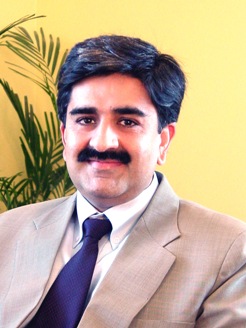  The Draft National IPR Policy ignores the concerns and issues raised by the Fast Track Task Force (FTTF), set up by the Department of Electronics and IT (DeitY), to catalyze and re-establish significant growth in mobile handsets and component manufacturing eco-system in India.
This FTTF was entrusted with the responsibility to submit recommendations for Mobile Phone IPR issue, the major factor plaguing the growth of Mobile Handset Industry in India. This issue, if left unchecked, has the power to nip not only the growth of the industry, but the entire manufacturing ecosystem.
“The Policy is at a draft stage, and we have already sent in our submissions. The Indian industry has high hopes and confidence from the DIPP, and is confident that no steps would be taken that are harmful to the nascent Indian telecom manufacturing industry, and the Make in India program,” said Pankaj Mohindroo, President, ICA.
In the interest of making India an electronics manufacturing hub, Indian Cellular Association (ICA) is highly disappointed that the recommendations put forth to be incorporated in the National IPR Policy have not been incorporated as part of the National Draft IPR Policy for the larger interest of the Indian Mobile Handset industry and whatever little selective adoption, only distorts the purpose of the recommendations made. This is not to say that all recommendations are tainted and discarded as being fruit of the same tree.
It should be noted that the Indian mobile phone manufacturing industry is bringing in highest amount of investment to support PM Modi’s “Make in India” initiative and to bridge the digital divide in India. Unsubstantiated recommendations in the Draft National IPR Policy will not only affect the mobile phone manufacturing industry but also dampen the “Make in India” & “Digital India” initiatives of PM Modi.
The recommendations put forth by ICA to be incorporated in the National IPR Policy were on the lines of charging royalty on the component implementing a patent and not the end product, and having a rigorous examination procedure at the patent office in line with global norms so as to have uniformity in grant of patents.
If the issues related to the draft IPR policy were to be framed in a single sentence, it would suffice to state that the policy is not issued by a neutral body as Pratibha Singh is a member of the body.
Perhaps the current draft could have been different if the composition of the committee would have been different. When the National IPR Committee was formed, the Indian Cellular Association had written to the Committee and pointed out a clear conflict of interest. This conflict was due to the presence of Senior Advocate, Ms. Pratibha Singh, who is lead counsel for Ericsson, a major patent owner and currently in litigation with almost all brands – Micromax, Intex, Gionee, Lava, Xiaomi, and iBall.
It is well known that Ericsson has filed cases at the Delhi High Court against multiple parties, and has created an atmosphere of fear, uncertainty and doubt in the entire telecommunication industry.
No other jurisdiction in the world recognizes SEPs explicitly, i.e. in the IP Policy or Acts, it is always on a case to case, and on a patent basis by judicial determination– why should India rush to recognize them in its policy.
The draft National IPR Policy overrides the concerns of the Indian handset industry. As an example of the lop-sidedness of the draft policy, consider the clause 6: “Availability of Essential Patents (SEPs) on fair and reasonable terms will be facilitated.” This is seemingly very simple. In reality, it opens the proverbial Pandora box! This one sentence, legalizes standard essential patents, and guarantees the licensor fair and reasonable terms. The patent law does not explicitly recognize SEPs, leave alone fair and reasonable terms.
Interestingly, Ericsson does not conduct its licensing activities in China, where most of the manufacturing is done. If it does, then according to Indian patent law, it cannot ask for a royalty again, as the patents have been exhausted. Nor does Ericsson approach the chipset manufacturers. Publically Ericsson has agreed that it charges royalty on end product price (including taxes, etc.) is because it gets more money as the royalty percentage is applied on a higher base. And it is not just the Indian importers who have faced the brunt of litigation – Chinese entities too have faced litigation in India – the most notable one of which are Xiaomi and ZTE. Ericsson filed suit against Xiaomi, and Vringo filed suit against ZTE. Interestingly, no such litigation is ongoing in China. |